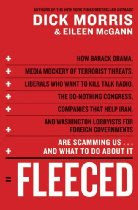
A review by Miguel B. Llora:
Noli Me Tangere has rightfully gained a place of national importance since it was completed in its original form - in Spanish - in 1887. Soledad Lacson-Locsin renews its spirit in this easy to read English language translation - complete with helpful footnotes and a warmth that only one close to the material can appreicate. "Noli" as it is affectionately called, forms part of the canon text in Filipino education. Translated into Tagalog, it brings a unique perspective to the life and times of colonial Philippines. Translated into English, it brings it to life for the rest of the world.
As a simple introduction - without giving too much away - the story centers around two characters - Ibarra and Elias and the trials and tribulation surrounding their individual quests for happiness and justice. Standing between all this and the reason for all the discord is a power structure triad of the Church - mostly the Holy Orders; the State mechanism - the Civil Guards, the Alferez, etc.; and Culture - Imperial Culture to be more exact. Locked within this Discourse and the constraints applied on them by all these forces, Ibarra and Elias - forming both sides of Filipino existential angst and liberating spirit - are crushed beneath the wheel. Everyone is a victim.
Rizal was by no means a seer of any kind. However, what rings true then, as it does now, is the way Filipinos create values. In a unique perspective as an emigre, Rizal completed this novel while he was in Spain - with all the joys and sense of perspective that was allowed. If we listen to him now as we listened to him then, perhaps we can transcend our human-all-too-humanes and become what we are capable of becoming.
Written at about the same time as Nietzsche was writting, the message is almost similar yet also very different. While Noli was iconoclastic about the abuses of the church and the almost stunted sense of becoming, Nietzsche took it one step further and formed an indictment against the nihilism of Europe via the message of the church in general. What I am trying to say here is that Rizal and Nietzsche see a sense of becoming stunted by anti-humanist dogma. I salute both, who have gone to the great beyond ahead of us and read their messages of "becoming".
If you wish to peek into the Filipino psyche - as a non -Filipino, there is no better avenue than Rizal's Noli - specially this version. As a Filipino at home as well as a Filipino abroad - we need to re-read Noli and heed its warning. We obviously did not learn about ourselves the way Rizal meant to teach us - the results are self evident. Once again, I have not read a finer translation than this one by Soledad Lacson-Locsin. As a metaphor for the Philippines, Maria Clara could not have looked more beautiful.
For more information and review please click HERE



